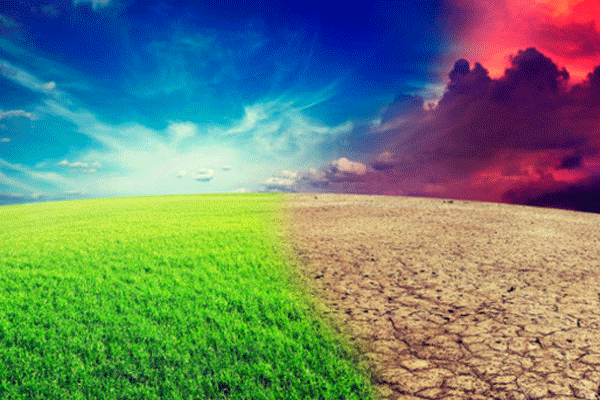
This country is home to many vital water sources that have been contributing to communities’ wellbeing and their livelihoods.
guest column: Peter Makwanya
Chief among the common water sources are streams, rivers, ponds, dams and lakes. But there are also vital sources that drive the forests and human survival, but are not always talked about.
These are groundwater sources, wetlands, aquifers and springs. Groundwater is considered, as one of the countrys’ most important natural resources, used for storage and retention for domestic, industrial and agricultural uses.
Groundwater sustainability can be defined as development and use of ground water in a manner that can be maintained for an indefinite time without causing unacceptable environmental, economic or social consequences (Downing, 1998).
In this regard, by not using underground water sparingly, it’s not only the environment that suffers, but socio-economic issues will also be retarded and compromised as well. Therefore, water scarcities, hunger and famine, diseases and poverty will rule the roost.
Groundwater is also the largest source of most of the water used for irrigation in many countries, home and abroad.
Groundwater sources are regarded as the main reserves of fresh water and represent much of the potential of the future water supplies. But it calls for utmost discipline, restraint, and sustainable behavioural practices in managing, protecting and utilisation of these vital water sources in order to preserve the natural ecosystems and fight climate change impacts.
- Chamisa under fire over US$120K donation
- Mavhunga puts DeMbare into Chibuku quarterfinals
- Pension funds bet on Cabora Bassa oilfields
- Councils defy govt fire tender directive
Keep Reading
It is the human hand that is always visible in anthropogenic climate change, hence, it must also be the same human hand and attributes that should be seen regulating trigger happy and eco-freaky behaviours in order to safeguard these vital water sources.
This year, Zimbabwe recorded high amounts of rainfall and we thank God for that, notwithstanding its destructive and violent nature.
We must give God his due respect and appreciation of this gesture, although some lives were lost and homes destroyed in the process. The overall factor is that these rains boosted the groundwater tables in a big way.
Now it is our duty as environmental stewards and agents of environmental sustainability to manage and use the boosted groundwater sparingly, efficiently and effectively without destroying the environment.
Of course, as citizens we can use underground water for nutritional gardens and small irrigation programmes, to boost our family incomes, improve nutritional levels and food security and send our children to school.
But excessive groundwater pumping and utilisation can result in reduced lower water tables, reduced river flows, lowering of lake levels and reduced inflows to our very few remaining wetlands and springs, thereby, creating anxious moments for the availability of safe drinking water. In this regard, it is important to safeguard this precious resource for sustainable development and ecosystemic protection.
In our situation, the Zimbabwean landscapes have been starved of meaningful rains and moisture for quite a number of years. But this year has seen the recharging of the thirsty forests and terrains from the unusually high precipitations that pounded and saturated the underground levels.
It’s not all the landscapes that were recharged at the same rates, some received less rains, while others received more than the required amounts of rainfall, but all the same, considering the national outlook, more than 75% of the country received above normal rains.
Even the traditional barren, arid and semi-arid regions of this country became wet. Now that we have adequate water stored underground, it is the way we harness and access this water that matters most, which will either lead to depletion of underground water resources or sustainable usages, but depletion rates also differ. In a changing climate like the one we are currently experiencing, groundwater depletion has serious environmental repercussions.
While the majority of local communities are encouraged to engage in small scale irrigation programmes, and irrigation being necessary in maintaining food security, over exploitation may be a major worry, since people would want to maximise water usages and derive maximum benefits.
As such, unsustainable harvesting of underground water will leave the once high water tables severely depleted. On the other hand, rapid expansion of peri-urban settlements, towns and cities, will also consume large amounts of the precious liquid through brick moulding, gardening and recreational facilities. But besides large scale commercial irrigation schemes, many locals have not been keen to practice small irrigation programmes besides their centuries old small scale gardening ventures.
With regard to surface water supplies, it is also disheartening to note that some of our vital water sources like streams, rivers and dams have been contaminated by industrial affluent or polluted with raw sewage.
These are water sources that should help to sustain human lives, but they now pause greatest dangers to human and animal survival, leaving only underground water sources as trusted sources for consumption.
Groundwater sources and the natural ecosystem work hand in hand. By depleting the underground water sources, the ecosystems will be compromised as well. These are wetlands, forest vegetation, aquifers, fauna and river base flowing systems.
As such, society should be taught to value the relationship between the natural ecosystems and groundwater.
Groundwater also regulates soil erosion by providing moisture to vegetation cover. The existence of groundwater will act as a barrier against climate change by creating carbon sinks.
Peter Makwanya is a climate change communicator. He writes in his own capacity and can be contacted on: [email protected]











